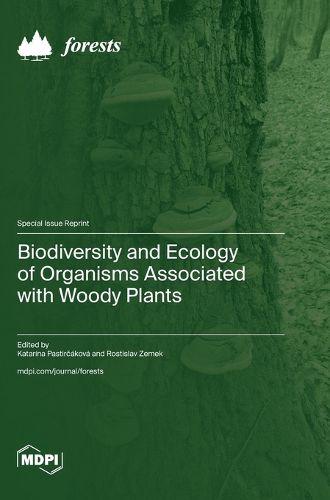Readings Newsletter
Become a Readings Member to make your shopping experience even easier.
Sign in or sign up for free!
You’re not far away from qualifying for FREE standard shipping within Australia
You’ve qualified for FREE standard shipping within Australia
The cart is loading…






This title is printed to order. This book may have been self-published. If so, we cannot guarantee the quality of the content. In the main most books will have gone through the editing process however some may not. We therefore suggest that you be aware of this before ordering this book. If in doubt check either the author or publisher’s details as we are unable to accept any returns unless they are faulty. Please contact us if you have any questions.
Woody plants serve as habitats for a diverse range of organisms, including herbivores and pathogenic species, which are often considered to be both harmful and beneficial organisms that support plant health and ecosystem stability. For instance, natural enemies of pests are essential for preserving the health of wild woody plants, managed forests, and ornamental trees in urban green spaces such as parks, gardens, and urban forests. While the interactions between woody plants and herbivores have been well documented, much less is understood about the complex relationships among the various organisms that inhabit these plants. In this Special Issue, the different contributions by the authors provide critical insights into the multifaceted roles of invertebrates and microorganisms in diverse ecosystems, significantly enhancing our understanding of ecological dynamics and pest management. As such, this Special Issue offers valuable examples of recent research activities in this global discipline.
$9.00 standard shipping within Australia
FREE standard shipping within Australia for orders over $100.00
Express & International shipping calculated at checkout
This title is printed to order. This book may have been self-published. If so, we cannot guarantee the quality of the content. In the main most books will have gone through the editing process however some may not. We therefore suggest that you be aware of this before ordering this book. If in doubt check either the author or publisher’s details as we are unable to accept any returns unless they are faulty. Please contact us if you have any questions.
Woody plants serve as habitats for a diverse range of organisms, including herbivores and pathogenic species, which are often considered to be both harmful and beneficial organisms that support plant health and ecosystem stability. For instance, natural enemies of pests are essential for preserving the health of wild woody plants, managed forests, and ornamental trees in urban green spaces such as parks, gardens, and urban forests. While the interactions between woody plants and herbivores have been well documented, much less is understood about the complex relationships among the various organisms that inhabit these plants. In this Special Issue, the different contributions by the authors provide critical insights into the multifaceted roles of invertebrates and microorganisms in diverse ecosystems, significantly enhancing our understanding of ecological dynamics and pest management. As such, this Special Issue offers valuable examples of recent research activities in this global discipline.